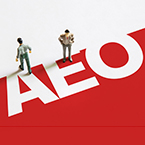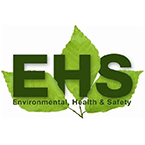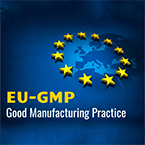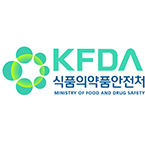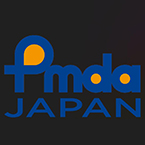GUANGHAN, CHINA / ACCESSWIRE / August 20, 2021 / On April 27, Zhang Ge, Board Chairman and President of Sichuan Deebio Pharmaceutical Co., Ltd. (hereinafter referred to as Deebio), participated in the China Bio-enzyme High-quality Development Seminar. He said at the meeting, “After 27 years of development, we have developed from a small workshop into a standardized pharmaceutical API company. Today, Deebio is a world-leading bio-enzyme production and R&D expert company.”
Zhang Ge was confident about what he had said. Data shows that Deebio has the qualifications and capabilities for the production of more than 10 kinds of Bio-enzyme API, among which kallidinogenase basically occupies the global market; the market shares of pancreatin, pepsin, trypsin-chymotrypsin and other products all exceed 30%; in the global market, Deebio is the only API supplier of elastase, clear solution pepsin and pancreatin with high lipase activity in China. Since 2005, Deebio have earned CN-GMP and EU-GMP certification, with its products being exported to 30 countries worldwide, including Europe, America, Japan and South Korea for over 20 years. It is a long-term partner of Sanofi, Celltrion, Nichi-Iko, Livzon and other outstanding pharmaceutical companies.

“These achievements mostly benefit from technological innovation, standardized management and green production.” Zhang Ge said, “Thanks to Deebio’s unremitting efforts for high quality, the bio-enzyme API products have such advantages as high activity, high purity and high stability and are thus widely recognized by partners.”
Doing It Best
Bio-enzymes are proteins with catalytic functions, which differ from other proteins in that they have an active center. The API of bio-enzymes are obtained by separation, extraction and purification from organisms.
“Bio-enzyme API is an industry with large investment, low profit and high technical risk. The industry scale is small. And there are few companies engaged in it.” According to Zhang Ge, the high technical risk is due to the activity of enzymes making the purification process more difficult. For example, if the process is not well controlled, the product may have no activity, and then lose its medicinal value.
Bio-enzyme API is one of the raw materials of bio-pharmaceuticals. With low toxicity and side effects, bio-pharmaceuticals are highly targeted for the treatment of certain diseases and are easily absorbed by the human body. It has unique therapeutic effects for diabetes, cardiovascular diseases, tumors and viral diseases.
“My consistent philosophy is that as long as I do what others don’t do, I do it the best.” Zhang Ge believes that the reason that he has been rooted in the bio-enzyme industry for more than 20 years is his heartfelt love for enzymes. In 1990, after graduating from Sichuan University (The former Chengdu University of Science and Technology) majoring in biochemistry, Zhang Ge worked as a technician and later laboratory director in Deyang Biochemical Pharmaceutical Factory. Five years later, due to the factory restructuring, he took over the business.
“At that time, the biochemical factory was about to be transformed into a pharmaceutical company. I went to the factory to check and saw that a few young people were remodeling a small old workshop. Their faces were covered with water and mud. Among them was Zhang Ge.” Zhong Guangde, the former Deputy Director of the Sichuan Provincial Medical Administration Bureau, recalls with emotion, “Zhang Ge is still that young man doing practical things in my eyes.”
In December 1994, Zhang Ge founded Sichuan Deyang Biochemical Products Co., Ltd. As soon as it was established, it almost went bankrupt.
“In the early 1990s, the quality awareness of China’s Bio-enzyme industry was generally not strong, and our understanding of enzymes was still limited at the knowledge that good enzyme activity is enough.” According to Zhang Ge, in March 1995, the newly establishment Deyang Biochemical Products Co., Ltd. got its first order for a crude kallidinogenase for export to the Japanese market. However, the products were rejected due to the difference of a few milligrams in fat content. “If the other party asked for compensation, the company would go bankrupt, and the amount of compensation was astronomical for the company at that time. Fortunately, through coordination, the other party did not ask us to indemnify but let us re-provide the products,” Zhang Ge said.
This experience taught Zhang Ge, who was just starting a business, an important lesson and made him realize that product quality is the lifeblood of a company. In the following 27 years of development, the company has always adhered to strict quality standards. Based on years of basic research, Deebio has constantly improved its technology, thereby creating a full-process enzyme activity protection, non-destructive activation and precise purification technology to ensure high activity, high purity and high stability of the Bio-enzyme API products.
Sparing No Effort to Invest in Innovation
“The bio-enzyme API industry is featured by small amounts and diversification. Without technological innovation, one or two products cannot support a company to develop. Deebio has only one product since its establishment. But today there are more than a dozen bio-enzyme APIs, which is inseparable from our continuous investment in technology.” Zhang Ge said.
Trypsin-Chymotrypsin is a proteolytic enzyme separated and purified from porcine pancreas. It is one of Deebio’s main products. The R&D of this product has benefited from the industry-university-research cooperation. In 1963, Qi Zhengwu, a researcher at the Shanghai Institute of Physiology and Biochemistry of the Chinese Academy of Sciences, used recrystallization to extract a mixed crystal of chymotrypsin and trypsin from porcine pancreas, which was named trypsin-chymotrypsin. This enzyme had not been industrialized for more than 30 years. Zhang Ge saw the opportunity in it. “In 1997, we cooperated with the research group of academician Qi Zhengwu to realize the industrialization of trypsin-chymotrypsin and achieved good economic and social benefits. At its best time, more than 20 tons a year of this product was exported to India.” According to Zhang Ge, academician Qi Zhengwu indicated “Incredibly, my products were industrialized by township and village enterprises.′
After tasting the sweetness of technological innovation, Deebio has further increased its investment in technology, and developed close industry-university-research cooperation with Tsinghua University, Chinese Academy of Sciences, Sichuan University, China Pharmaceutical University and other institutions of higher education and research institutes, to co-build laboratories, continuously improve the team’s scientific research and innovation capabilities and to build a production and R&D team with high technology transformation capabilities that has successively obtained 15 patented technologies.
In order to further improve product quality, in 2003, Deebio cooperated with a German partner with more advanced technology and management capabilities to establish a joint venture called Deyang Sinozyme Pharmaceutical Co., Ltd. “In that year, we invested more than 20 million yuan to build a new plant, with the production equipment being built with the world’s top materials. During the same period, a factory could be built in China for 5 million yuan. The cost of building Sinozyme is equal to that of 4 factories.” According to Zhang Ge, the German partner visited the company to give guidance for ten days every month. With the introduction of advanced quality system management methods, Sinozyme’s quality system management ability has been raised to the highest international level.
In 2005, Sinozyme became the first Chinese pancreatin company to obtain the EU-GMP certification; in 2011, Sichuan Deebio Pharmaceutical Co., Ltd. was established; in 2012, Deebio obtained CN-GMP certification; in January 2021, Deebio (Chengdu) Bio-technology Co., Ltd. was established for the R&D, production and application of high-end finished drugs and biotechnology enzyme preparations.
“I think companies should be willing to invest in production technology innovation. Deebio built a new factory every 7 to 8 years. In these years, most of the profits have been invested in enterprise construction, production equipment transformation and talent introduction. Shareholders and managers get few dividends.” Zhang Ge, once an engineer, fully understands the importance of technology investment. He kept the pace of innovation, and listed a series of to-do items: Deebio’s new GMP workshop built in accordance with FDA standards was started last year and is expected to be completed in late May and enter trial production; Deebio (Chengdu) Bio-technology Co., Ltd., located in Wenjiang, Chengdu, officially started construction on April 26 and is expected to be officially put into use in October.
“Green Production Is What I Am Most Proud of”
The pollution of API has always been a concern of society, and environmental protection has become a high-tension point that determines the survival of enterprises. Adhering to green production is what Zhang Ge is most proud of.
“During the initial development of the company, we did not pay much attention to environmental issues. But then, as the country put forward environmental protection requirements, we began to realize its importance.” According to Zhang Ge, in the past ten years, Deebio has paid much attention to it, striving to achieve sustainable development.
It was an incident that prompted the change. “At a meeting many years ago, our company’s executives were planning on a product that needed some chemical reagents. One of the chemical reagents could not be degraded and, if the wastewater was discharged into the river, it might cause baby deformities. I had no hesitation to say no to this product.” Speaking of the incident, Zhang Ge was very emotional, “My hometown is beside the Tuojiang River, which is more than 200 kilometers away from Guanghan, Sichuan. And the river next to our factory flows into the Tuojiang River. Direct waste water discharge is a crime against future generations. So I won’t do such a thing.”
Since then, Deebio has stipulated that as long as the production process involves toxic and hazardous chemical raw materials or auxiliary materials that cannot be processed in the development of new products, development shall not be allowed, and it has insisted on investing in environmental protection for over ten years.
Today, Deebio has built a garden-style waste water treatment center with a daily treatment capacity of 1,000m³, with the waste water being discharged after reaching the standard. “This capacity is enough for us to use for ten years. And a garden has been specially built over the waste water treatment center. The treated water can be used to raise fish and water flowers,” Zhang Ge said proudly.
In addition, waste gas can be treated by spraying and other methods, and the biogas can be used to preheat the boiler after degassing and dehydration, thus saving 800m³ of natural gas every day. For the solids produced, there is a special solid processing workshop. The protein waste is turned into biological fertilizer within 4 minutes through the dryer and is sent to the biological fertilizer plant.
Zhang Ge said emotionally, “Now the whole plant area does not produce any peculiar smells, and the waste water and pollutants are controlled in an orderly manner. I am prouder of this than the production of products, which is the achievement I value most.”
Regarding future development, Zhang Ge is full of confidence, “The development of the industry requires continuous progress. The high-quality development of the bio-enzyme API industry means not only the production of high-quality products, but also having more advanced technology, more efficient operations, higher management requirements, and more environmentally friendly production methods. Deebio will take the leadership of the industry’s high-quality development as its responsibility, and wholeheartedly serve all mankind for their health along the path of innovative development.”
Post time: Aug-20-2021


